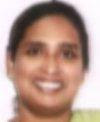Sun, surf, sand & education
The over 46 university-affiliated colleges in the state are attracting hundreds of students from as many as 35 countries across the globe, discover Preetu Nair & Brenton Cordeiro
Drop by some of the college campuses today and chances are you will find several foreign faces among the hordes of Goan youngsters.
In the last three years, the over 46 colleges affiliated to the 22-year-old Goa University have been playing host to an increased number of foreign students.
While 103 youngsters trooped in from abroad to study in the state in 2005, the number jumped to 320 last year.
Of these, the maximum are 165 who have come from Yemen, 52 from Afghanistan and 25 from Britain. Though statistics for this year aren’t available with the university, officials said the number “has increased”. The social sciences stream is the most popular for a degree.
Dr B Rodrigues, the foreign student advisor at the Goa University, said the increase in foreign students studying in Goa has come on account of the “Prime Minister’s interest in bringing students from developing countries to Indian institutes”.
“The PM sees these students as potential goodwill ambassadors for the country when they return home,” said Rodrigues.
Goa attracts students from 35 countries including Germany, Russia, Korea, Sudan, Afghanistan, Yemen, Great Britain, Tanzania, the Middle East and Bangladesh.
“They apply to the colleges either on a self-financing basis or through the Indian Council for Cultural Relations (ICCR) which offers them scholarships,” said Dr Shrikant Deshpande, principal, Dhempe College of Arts & Science, Miramar.
“The (foreign) students are sincere in their academic efforts and interact regularly with teachers,” said Joao Costa, vice principal, Rosary College, Navelim.
Demilade Adisak, a Nigerian student who came to Goa in 2006 and is pursuing her third year science degree at Dhempe’s, is among several from her country who chose Goan colleges over other institutions in Asia. “The average cost of studying in Goa is almost one-fourth of what is charged at our private colleges back home. Besides the quality of education here is much better,” said Adisak who is here on a selffinancing basis.
Goa’s ‘party destination’ tag is an additional attraction. Afghanistan-native Walia Shinzai, a second year economics student at Dhempe’s said he chose Goa, even though his counterparts chose educational institutes in other parts of the country especially Pune, “because I found it to be a fun place”.
“You can party and enjoy even as you learn. I love that,” said Shinzai.
Sudan-native Mohammed Idriss, a final year economics student at Dhempe’s, sees Goa as a stepping stone to going abroad. “I was weak in English and in Goa I have learnt to speak and write it better. This is definitely going to help me to pursue my further studies in the UK,” said Idriss.
Deshpande added, “The foreign students are often weak in English and this is a major concern. But the Goa University has planned short-term courses in English to aid such students.”
Incidentally, while foreign students don’t mind pursuing their graduation in Goa, many aren’t keen on a post graduation degree from the state.
While some blame this decision on Goa’s poor job market scenario, others said a European university degree would give them a more competitive edge.
“No amount of degrees or expertise from Goa can guarantee a student a decent and well-paying job. A foreign degree from a European university or the US will give us the much-needed edge in the job market,” said Shinzai.
Meanwhile, if students from abroad like studying in the state, their Goan counterparts too have accepted the added competition. “A few of my juniors are from abroad and they’re really serious about their studies,” said Nadia D’Silva, a final year student from Saraswati College, Mapusa.
All is not smooth sailing, though. The principal of a South Goa-based college, speaking on condition of anonymity said, “The initial batches of foreign students that came to study in Goa did really well in their studies. The later lot however, have not been regular with their studies and have often got into controversies, which in turn, have brought them under the purview of the police.”
Another principal added that some students “often bunk classes” and “are involved in illegal activities”. “Most of the foreign students have a problem coping with the syllabus and there have been a few cases in which the students got into trouble with the police over drugs,” alleged the principal of a North Goa based institute.
In the wake of the recent bomb blasts in Bangalore and Ahmedabad, police sources added that students, specially those studying in unrecognised institutes, were being investigated.
But terror fear or no, academicians insist the number of students coming from abroad are increasing and will continue to do so. TNN
2008 Jul 30 Times Of India Goa
Subscribe to:
Post Comments (Atom)







No comments:
Post a Comment